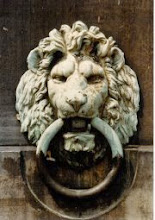I am going quote from Mr. Nock's essay, "On Doing the Right Thing," and I will insert the word "libertarian" for his use of "anarchist." He was not speaking of the wild-eyed, bomb-thowing type of person that we think of when we use the word anarchist today. What Mr. Nock had to say was important then, in 1935. It is even more important today . . . for those of us who know that the "State" is only getting bigger and, as it gets bigger, our personal liberty gets smaller. And, just as important, we also know that morality cannot be legislated and the attempts to do so by the Liberals and Progressives has only cause more problems in our society.
In the essay from which I will quote, Mr. Nock was talking about three regions of behavior in all of the actions of mankind. The first region is that which is controlled by law or some outside force beyond the individual, the second region is of "indifferent choice," that is, what type of car, or shirt, or toothpaste to buy. The third region is the one that we, as individuals, through our culture and society learn and have a choice of obeying or not. For instance, "women and children first," used to be common language and accepted as the right thing to do in case of an emergency. I'm not so sure that that is true today. This is the freedom of moral choice region.
The third region is a region that can build character and make good and morally strong citizens. It is about choices and mistakes and learning from those mistakes to become better, stronger people, and it has to be done by the individual, through experience. It cannot be forced upon people. They must understand and accept it. As the old saying goes: "A man convinced against his will is of the same opinion still." Legislating morality is a form of tyranny and it never works.
Mr. Nock said that, in 1935, Americans had very little of that type of personal moral freedom, their lives being controlled more by morality laws, rather than laws meant to protect rights and punish rights-violators. In Latin there are two legal terms. The first is malum in se, which means that an act is, in and of itself, wrong: murder, rape, assault, robbery, child molesting, etc. The other term is malum prohibitum. That means that the act, in and of itself, is not wrong, in the sense that it does not violate the rights of others, but that some people find it to be morally wrong and those people have enough influence to get the government to make a law against such behavior. Therefore, we, as individuals, don't have the legal right to behave in certain ways because of the moral beliefs and influence of some people; we don't have the freedom necessary to a truly free and liberty-loving society. And, that is the type of freedom that Mr. Nock is referring to when he wrote what I have quoted below.
"The practical reason for freedom, then, is that freedom seems to be the only condition under which any kind of substantial moral fibre can be developed. Everything else has been tried, world without end. Going dead against reason and experience, we have tried law, compulsion and authorititarianism of various kinds, and the result is nothing to be proud of. Americans have many virtues of their own, which I would be the last to belittle or disparage, but the power of quick and independent moral judgment is not one of them.
. . . .
"Freedom, for example, as they keep insisting, undoubtedly means freedom to drink oneself to death. The [libertarian] grants this at once; but at the same time he points out that it also means freedom to say with the gravedigger in "Les Miserables," "I have studied, I have graduated; I never drink." It unquestionably means freedom to go on without any code of morals at all; but it also means freedom to rationalise, construct and adhere to a code of one's own.
. . . .
"The [libertarian] is not interested in any narrower or more personal view of human conduct. Believing, for example, that man should be wholly free to be sober or to be a sot, his eye is not caught and exclusively engaged by the spectacle of sots, but instead he points to those who are responsibly sober, sober by a self-imposed standard of conduct, and asserts his conviction that the future belongs to them rather than to the sots.
. . . .
"The [libertarian], moreover, does not believe that any considerable proportion of human beings will promptly turn into rouges and adventuresses, sots and strumpets, as soon as they find themselves free to do so; but quite the contrary. It seems to be a fond notion with the legalists and authoritarians that the vast majority of mankind would at once begin to thieve, murder and generally misconduct itself if the restraints of law and authority were removed."
I wholeheartedly agree with Mr. Nock. The government, that is, the "State," cannot force morality upon us. And, by having so many laws that govern our personal moral lives, it takes away the ability of many people, especially the young, to fully come to grips with true morality. After several decades of the Progressive and Liberal social engineering of our society, are we more or less polite than we were 100 years ago? Are we more or less violent than we were 100 years ago?

No comments:
Post a Comment